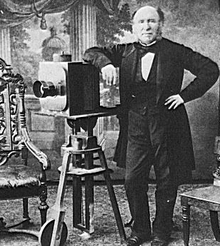[contextly_auto_sidebar id=”wKTuBaBs4g6nEeAQFph8OgG0XKZQVL7g”]
THE state of photographs and other images on the Web is fraught and confusing, and seems destined to become more of both with time. Vague tensions turn into lawsuits; the “free” crowd, sometime with tech-corporation lobbying, goes up against Hollywood lawyers, and on and on. I must admit, as someone who respects the need for creative folk to make money from their work, and as a blogger always hungry for fresh images, I come down on both sides of the debate.
Now, Getty Images has conceded to widespread unlicensed borrowing/pilfering of its photos by making 35 million images free. A well-balanced piece on the Nieman Journalism Lab site gets at what this means, in all its complexity. Here’s the subhed: “With lots of people on the web are using its images without credit or payment, Getty is betting that allowing broader free use can help the bottom line more than it harms it. But watch out: Ads may be on the way.”
Here’s a bit from the story:
Getty’s not doing this out of the good of its heart. It recognizes that images on the Internet are treated as de facto public domain by many people on social networks, blogs, and the scummier parts of the content web. It knows it’s highly unlikely to ever get significant money out of any of those people. Even you and I, upstanding Internet citizens, are unlikely to license a photo to tweet it to our followers.
Possible ads — which, it seems, could be put up on my site, without my permission, if I used their images — are not the only thing to worry about. There’s also a potentially creepy data-collection element to this as well.
Ultimately, it’s hard for me not to wonder how this will effect the photographers whose work gets sold to Getty Images. Perhaps not at all. But my recent work on the plight of the creative class has shown me just how damaged shooters have been by digital and economic changes. Will this lead, in the medium term, to less revenue to pay photographers?
Last year I spoke to Jaron Lanier, the Silicon-Valley skeptic who makes impact of technology on photographers a central point in his book, Who Owns the Future?
Here’s one part of our exchange:
You say early in the book, “As much as it pains me to say so, we can survive only if we destroy the middle classes of musicians, journalists, photographers.” I guess what you seem to be saying here is the creative class is sort of the canary in the digital coal mine.
Yes. That’s precisely my point. So when people say, “Why are musicians so special? Everybody has to struggle.” And the thing is, I do think we are looking at a [sustainable] model.
We don’t realize that our society and our democracy ultimately rest on the stability of middle-class jobs. When I talk to libertarians and socialists, they have this weird belief that everybody’s this abstract robot that won’t ever get sick or have kids or get old. It’s like everybody’s this eternal freelancer who can afford downtime and can self-fund until they find their magic moment or something.
The way society actually works is there’s some mechanism of basic stability so that the majority of people can outspend the elite so we can have a democracy. That’s the thing we’re destroying, and that’s really the thing I’m hoping to preserve. So we can look at musicians and artists and journalists as the canaries in the coal mine, and is this the precedent that we want to follow for our doctors and lawyers and nurses and everybody else? Because technology will get to everybody eventually.
I welcome thoughts on what the Getty Images news means to bloggers, readers, photographers and others.


I think Getty’s choice has little effect on working photographers. In fact, if a photo goes viral in the slums the internet, it creates more value for it in the high-rent districts. FB is full of swiped photos, but going viral makes a photo more appealing to paid sites and real publishers. Even that damn Grumpy Cat was monetized …
The photos from my exhibition are online without watermarks, and I just cruise Google images every couple a weeks to see where they’ve landed. A couple were on commercial sites and I send them an email saying I’m happy to see they like it, now we can discuss copyright release fees … that does it.
The word “free” is being redefined by Getty (but then Facebook and others have already done that, haven’t they?). Between their photos linking back to Getty, the likely ads they’ll place in conjunction with the use of their photos, and the Getty watermarks accompanying the photos — the “free” photography provides great advertising opportunities and a new monetizing strategy for Getty but highly impairs the users. Very creative! But we certainly won’t be using it. TNSTAAFL!